Mortgage Types Jargon Busting
- Independent Advice
- Exclusive Products Available
- Access to Competitive Rates
Speak to us today about the most suitable options for you.

Get in Touch
Home » Independent Mortgage & Commercial Finance Broker in Derby – Trusted & Independent » Mortgage Types Jargon Busting
Gavin Burrows, Director and Mortgage Adviser from Fifty Nine Financial breaks down the different types of mortgage in this Jargon Busting style piece.
What is a Fixed-rate mortgage?
Most people tend to favour a Fixed-rate mortgage because the interest rate that you’re paying remains fixed for a period of time. This would usually be for a period of two or five years, but some lenders may allow a three year Fixed-rate and there are even some offering ten years.
What is a variable rate?
The variable rate is generally what you would move on to when your existing mortgage deal comes to an end. So whether that’s a Fixed-rate or a tracker, you move onto the lender’s Standard Variable Rate. This rate is typically higher than other mortgage rates.
What is a tracker rate?
A tracker mortgage rate of interest will predominantly move in line with the Bank of England’s base rate. Your mortgage could be set at the Bank of England’s base rate plus 0.12%, for example. If the base rate goes down, then your mortgage rate will go down, if the base rate goes up, your mortgage rate will go up. At the moment the base rate is at its all time low, which has benefitted many people.
What is a discounted rate?
A discount mortgage rate is typically set as a discounted rate below the lender’s Standard Variable Rate. When the variable rate moves, your discounted rate will move with it, similarly to a tracker-rate. These are not commonly used mortgages.
What is an offset mortgage?
An offset mortgage is where you have a savings account that sits alongside your mortgage and the amount that you’ve got in savings will balance out versus the mortgage debt that you’ve got. Therefore, the more you can keep in your offset savings account, the less interest you’ll be paying on the debt that you have.
Repayment types
Capital Repayment
Capital repayment is the most common type of mortgage for somebody with a residential mortgage. With this repayment type, part of the payment you make every month contains an element of interest and the other part will be reducing the capital. It might be referred to as Capital Interest or Capital Repayment.
Interest-only
With this type of mortgage repayment type, rather than making any contributions towards reducing the capital, all you’re doing each month is paying interest on the mortgage debt. This would typically be more appropriate for Buy to Let mortgages, although it’s not uncommon to find residential mortgages with the option to repay Interest-only.
With this repayment type, you need to be aware that at the end of your mortgage term, if you’ve not made any contributions toward reducing the capital, your entire mortgage balance will need to be paid off. That’s why it’s not quite so appropriate for people with residential properties, because at the end of the mortgage term, you don’t want to have to sell your house to pay the mortgage back. With Buy to Let that’s a more acceptable repayment vehicle to use.
What is a flexible mortgage?
Flexible mortgages offer flexible benefits or features, such as:
Cashback
When you take out a mortgage some lenders offer cashback as an incentive. Cashback can vary dramatically from one lender to another, typically from £250 up to over £1000.
Overpayments
Another flexible feature would be the ability to overpay your mortgage. Most mortgages will allow you to make overpayments of up to 10% of the balance per year. Knowing that you’ve got the ability to make voluntary overpayments each month to achieve your goal of paying your mortgage off over a short period of time can be very beneficial.
Using overpayments to pay off a mortgage faster gives you much more flexibility than if you commit to a shorter mortgage term with the lender. If ever you were faced with financial difficulties, it’s a lot easier to cancel your voluntary standing order for overpayments than it is to try and reduce your mortgage payments.
Payment break
Recently due to the pandemic, a lot of people have become familiar with payment breaks on their mortgages. In typical circumstances, it depends on your mortgage deal as to whether you would qualify for a payment break or not. Each mortgage deal will specify if and when you may qualify for a payment break.
If you have made your own voluntary overpayments, you’re essentially in credit, so you may be able to take a payment break.
What is porting your mortgage?
Porting a mortgage is where you take the existing mortgage that you have on the house that you’re living in and transfer it to a new property. If you were going to move house in the middle of a Fixed-rate on your existing property, for example, to leave your mortgage deal, the lender you’re currently with would most likely charge you an early repayment charge.
Rather than pay any penalties to exit that mortgage a portable mortgage will allow you to transfer the existing mortgage to a new property. You simply take a top up mortgage when buying the new property, assuming it’s more expensive, to cover the extra.
What is the Help to Buy scheme?
The help to buy scheme was a government backed scheme that launched a few years ago which allowed you to borrow a percentage towards the deposit to buy a property in the UK. The loan could be up to 20% of the value of the property outside of London and up to 40% inside London. That scheme came to an end in March 2021, however, a new Help to Buy scheme replaced it.
The previous scheme was available to anybody wanting to buy a new build home, whereas the new scheme is only available to First Time Buyers, and is also exclusively for new build properties.
What is the Mortgage Guarantee Scheme?
95% mortgages are back in the UK and it varies between from one lender to the next, with some operating the government backed scheme and others offering their own 95% mortgages. There are no restrictions around having to be a First Time Buyer to obtain a 95% mortgage.
What are the Right to Buy and Right to Acquire Schemes and how do they differ?
The Right to Buy scheme is offered by local councils and if you’ve lived in a council owned property for a certain period of time, you should qualify to be able to buy the council property. The amount of time you’ve rented the property for will dictate how much discount you qualify for.
The Right to Acquire is a very similar thing, except it’s typically offered by Housing Associations, but is ultimately very similar in terms of the concept.
Do you need to pay for advice from a Mortgage Broker?
An initial consultation is always free with Fifty Nine Financial, so if somebody would like to have a chat about a potential home move or a remortgage, we actively encourage people to get in touch for a chat.
Fees are typically payable, once you receive your mortgage offer.
Why Fifty Nine Financial?
- Access to Whole of Market
- Specialist Finance Broker
- Exceptional Customer Service
- No Upfront Fees


